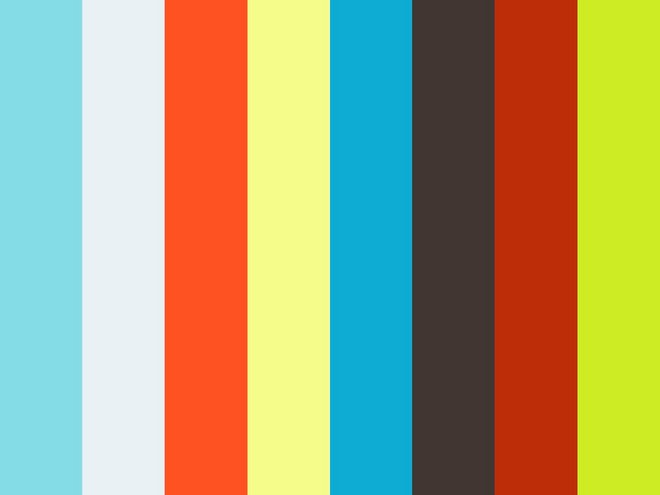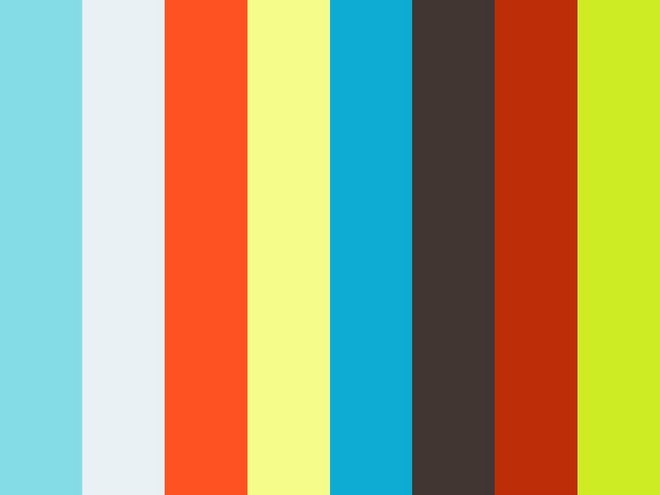The areas of Product Design are as diverse as the world of objects around us. Products can be created by hand or manufactured industrially in serial production. They can be the result of digitalized drafting, planning and production processes, and to an increasing degree, a combination of several methods.
The four professors responsible for the Product Design degree programme do not teach the disciplines of product design in the traditional sense. Instead they initiate and supervise projects which focus on a variety of areas, such as industrial or hand-crafted product design, interaction design, design and management, mobility, product and environment, stage design and exhibition design.
This degree programme is taught by the following professors:
Study product design at the Bauhaus-Universität Weimar

Produktdesign studieren an der Bauhaus-Universität Weimar
Click the Play button to load and view external content from Vimeo.com.
Automatically load and view external content from Vimeo.com (You can change this setting at any time via our »Data protection policy«.)
The degree programme Product Design offers the following courses:
| Standard duration of programme | Deadline for application | Application |
|---|---|---|
| 8 Semesters | 31 March | How to apply |
The design criteria have an aesthetic, semantic, symbolic, stylish, technical and material-related character. The design pieces are generally developed and created through research, conceptual consideration, free sensual investigation, sketches, experiments, material testing, digital design tools, presentations, models and patterns.
In addition to the product‘s aesthetics, understandability, necessity and attractiveness, product designers are also expected to consider related issues, e.g. sensible production methods, energy efficiency and resource conservation, and offer possible solutions.
Electronic technologies, in particular, which are firmly anchored in product design and manufacturing, require cooperative working methods and individuals who can reach a compromise without diminishing the quality of the final product. Product distribution, media-driven marketing activities, integration of products in material cycles and consumer behaviour are all fundamental components of design. The field of design must also respond to problems that the academic concept of art fails to resolve.
This pragmatic focus requires students to search, reflect, experiment, discuss and collaborate.
Following the prescribed duration of study of eight semesters, students obtain the »Bachelor of Arts« degree, the first-level certificate of professional qualification.
Application for the aptitude test in the undergraduate degree programme Product Design
The application for all degree programmes of the Faculty of Art and Design at the Bauhaus-Universität Weimar is exclusively conducted digitally via the online applicant portal. Registrations for the aptitude tests are possible from 1 December of the year up to and including 31 March of the following year (closing date). Please complete your registration by uploading all necessary documents by 31 March.
The aptitude test for the degree programme is divided into three parts:
- Registration/application for participation in the aptitude test. After the registration deadline, we will send you a homework assignment with dates and details of the examination procedure.
- Upload of the homework solution, a signed declaration that the submitted work has been produced by you (Download Declaration of Originality), motivation letter explaining the desire to study in the degree programme on around one A4 page, your curriculum vitae with details of your education, previous knowledge if applicable and the most recently obtained school certificate as proof of the general higher education entrance qualification
- practical examination, personal interview and presentation of up to 10 original design work samples which you please bring to the interview.
The aptitude test committee of the degree programme makes a preselection after reviewing the solution of the homework. Those who make it to the shortlist will be invited to the further aptitude test and take part in a personal interview, to which please bring up to 10 original design works. Further details on the aptitude test are regulated by the aptitude test regulations (Accessible document) (only available in German language).
Please register online via the Bauhaus-Universität Weimar online applicant portal by 31 March of the respective year. An assignment to complete at home will be sent to you at the beginning of April.
Language requirements:
Please note that passing the aptitude test does not mean automatic admission to the degree programme. Please submit a current proof of language proficiency with your application documents, which shows that you will reach the required language level by the time of your matriculation at the latest.
Lessons are taught in German. You must provide proof of German language proficiency with one of the following or equivalent certificates:
- DSH-2 (Deutsche Sprachprüfung für den Hochschulzugang)
- Test Deutsch als Fremdsprache - DaF (mininum 4xTDN 4)
Prerequisite for International Students are German language skills at the level C 1 (DSH-2 or TestDAF TDN 4). If you have any questions relating to certification, please contact Frau Johanna Merian at the Office of Student and Academic Affairs: studium[at]uni-weimar.de
For further information visit the website of the Language Centre.
| Standard duration of programme | Deadline for application | Application |
|---|---|---|
| 2 Semesters | 31 March | How to apply |
Master's degree programme Product Design
The concept of sustainability describes the use of a regenerative system in such a way that its essential characteristics are preserved and it can replenish its resources naturally.
Consequently, in the master's degree programme »Product Design«, the research focuses on expanding the relevant criteria of Product Design to include social, environmental and energetic influences on product culture, and on developing new solutions.
The potential of urgently needed energy-saving measures in our product culture exists at several levels:
- The socio-political circumstances
- The energy expenditures in the material and product cycles
- The customers' and target group's usage behaviour
This approach does not merely entail replacing standards of our product culture with presumably environmentally friendly ones and searching for ways to reduce technical expense, but rather investigating the sense of product systems, their conditions of emergence, their cycles, and optimizing the total performance of these systems.
There are two levels to this evaluation of cost and benefit, both of which complement the other – on one hand, to produce more with less material and energy, and on the other, to sustainably change usage behaviour. The former is an established hallmark for sophisticated design and deserves to be critically and vigilantly developed further.
The latter is a task which design must embrace, because political appeals to moral obligation will only result in an environmentally relevant usage behaviour if, for example, energetically effective product reduction can free itself of the stigma of sacrifice and deprivation. Since qualitative values underlie various parameters in this evaluation, the development of a more energy-efficient design standard must not come at the expense of experimentation and diversity of design.
Design will only have a relevant future if designers continue to detach themselves from function, technology, the market, trends and advertising, and focus instead on confidently pursuing their own provocative positions.
The prescribed period of study, which includes the completion of the master's thesis, is two semesters. Candidates may only enrol in this degree programme in the winter semester.
Application for the aptitude test in the Master's degree programme Product Design
The application for all degree programmes of the Faculty of Art and Design at the Bauhaus-Universität Weimar is exclusively conducted digitally via the online applicant portal. Registrations for the aptitude tests are possible from 1 December of the year up to and including 31 March of the following year (closing date). Please complete your registration by uploading all necessary documents by 31 March.
To apply for the aptitude test, please submit the following documents online via our online applicant portal:
- University-entrance diploma (Abitur)
- Curriculum vitae
- Letter of motivation (one page, DIN A4) explaining the desire to study and work and a focus of study
- a portfolio containing samples of design work
- Copy of the certificate from a university degree (Bachelor, Diploma or comparable degree)
- Copy of proof of native-speaker proficiency in German (copy high school diploma (Abitur)
or
first professional qualification in a German-speaking country
or
Proof of language proficiency in the German language at level C 1 of the Common European Framework of Reference (CEFR) by language certificates DSH-2 or TestDAF (4 x TDN 4) or equivalent - Copy of your identity card or passport
- signed declaration that the work submitted has been created by you (Download Declaration of Originality) (Accessible document)
- Passport photo (for your student ID card)
You will be invited to take the oral examination part of the aptitude test after the examination committee has evaluated your submitted samples (portfolio) and decided that you may proceed (pre-selection). You will be informed in writing of the result of the aptitude test no later than four weeks after the test has been completed. Further details on the aptitude test are regulated by the aptitude test regulations (only available in German language).
Language requirements:
Please note that passing the aptitude test does not mean automatic admission to the degree programme. Please submit a current proof of language proficiency with your application documents, which shows that you will reach the required language level by the time of your matriculation at the latest.
Lessons are taught in German. You must provide proof of German language proficiency. Prerequisite for International Students are German language skills at the level C 1 (DSH-2 or TestDAF TDN 4).
If you have any questions relating to certification, please contact Frau Johanna Merian at the Office of Student and Academic Affairs: studium[at]uni-weimar.de
For further information visit the website of the Language Centre.
Application deadline: from 1 December to 31 March of the year (received)
The workshops of the Faculty of Art and Design

Die Werkstätten der Fakultät Kunst und Gestaltung
Click the Play button to load and view external content from Vimeo.com.
Automatically load and view external content from Vimeo.com (You can change this setting at any time via our »Data protection policy«.)
Product design: insights into the 2018 aptitude tests

Produktdesign: Einblicke in die Eignungsprüfung 2018
Click the Play button to load and view external content from Vimeo.com.
Automatically load and view external content from Vimeo.com (You can change this setting at any time via our »Data protection policy«.)
